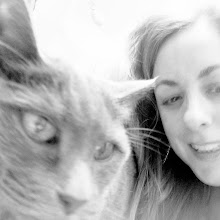
Now that Gilded Eternity (two-CD set) and World in Your Eyes (three-CD set) are receiving the deluxe reissue treatment, this seems like the ideal time to reproduce my 1990 Wire interview with Loop front man Robert Hampson (Reactor previously reissued Heaven's End and Fade Out, so their catalog is now complete). Sadly, the band would break up a year later, and Hampson would continue on as Main...and Robert Hampson.
***** ***** ***** ***** ***** ***** ***** ***** *****
"Loop latched onto thrashed blues grooves and rode
them hard, oscillating between distorted, hypnotic and
ambient soundscapes while throwing in samples from
2001: A Space Odyssey for good measure."
--Scott Thill, Wired
***** ***** ***** ***** ***** ***** ***** ***** *****
A loop is something that goes 'round and around. It's also the
name of a trio* from Croydon, England. Their music goes 'round
and around, too, but like a loop, it doesn't actually go anywhere,
always returning to the same theme. Each Loop song, from their
first record, Heaven's End (Head), to their latest, A Gilded Eterni-
ty (Beggar's Banquet/RCA), is different from the other—but not
by much. Each one is distinctively Loop's, and they're all good.
* Sometimes, like their rivals in Spacemen 3, a quartet.
Their name actually derives from a rare Velvet Underground flexi-
disc that accompanied a long-forgotten publication called Aspen.
Robert, Loop's founder, claims White Light/White Heat as one of
his favorite albums. Not surprisingly, it's the VU recording that
utilizes the greatest amount of repetition and distortion.
In comparing Loop to bands that have come before, VU defin-
itely qualifies, but rather than citing specific bands or records, it
makes more sense to cite specific songs. For instance, Loop has
more in common, stylistically, with VU's reverb-saturated "Sis-
ter Ray" or the much-reviled "Murder Mystery" than to VU in
a general sense. On the contrary, Loop is very...particular.
"Soundhead" (Heaven's End, 1987)
Further song references include Can's "Mother Sky," which they
cover on the B-side of their "Black Sun" 12-inch, Suicide's "Rocket
USA," which appears on their first LP, the Stooges' "We Will Fall,"
which was produced by VU's John Cale, the MC5's version of Sun
Ra's "Starship"—and not the Spacemen 3's—and even John Col-
trane's acid-drenched aberration "Om" ("I am Ommmm!!!").
If you were to play these epic (sound)tracks for someone who
had never heard Loop before, they'd still have some idea what
to expect, which isn't to suggest that they're completely predict-
able once you're aware of their influences; just that these num-
bers do provide some reference points towards understand-
ing what they're all about—and they're all about repetition!
Fortunately, the result isn't repetition as an end in and of itself,
although it probably sounds that way to their detractors. Simp-
ly put, if you don't like any of the aforementioned outfits, you
probably won't like Loop. Their goal is more about establish-
ing a certain mood than merely serving as something for lis-
teners to "rock out" to (although you can do that, too).
They're basically coming from the same sort of experimental
tradition that reached full flower in the late-1960s/early-'70s
German scene that spawned musical innovators Faust, Amon
Duul II, and Neu! Like fellow '90s mood merchants the Flam-
ing Lips, Robert doesn't like to be described as "a throwback
to the '60s" or "psychedelic"—one and the same as far as he's
concerned. "I think when you get called psychedelic," he ex-
plains, "it makes it sound as if you're still living in the '60s."
Click here for part two
Endnote: Slightly revised from the original text. Click
here for my Wire interview with Sonic Boom and here
for my Hype one with Jason Pierce. Image from Wired.

No comments:
Post a Comment